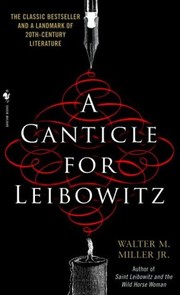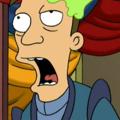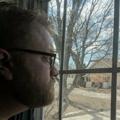Nora Tindall reviewed A Canticle for Leibowitz by Walter M. Miller Jr.
Interesting, important, problematic
3 stars
This is a book whose premise is its most interesting contribution. In 1959, it was, as the reverse blurb says, "an extraordinary novel", but no longer. Anyone who is interested in the lineage of post-apocalyptic fiction should consider reading it, but it is both heavy and heavily outdated, both in social sensitivity and in technology. The latter is understandable, as the silicon integrated circuit was invented in the same year as the novel's publication; the former less so, and I caution anyone who is not willing to read extensively on such topics as the religious justifications for denying people euthanasia against reading much of the third act. By the time you get there, it is fairly clear what will happen.
The core argument of this novel is that the Catholic Church is the vehicle of humankind's material salvation in the face of Armageddon, which is certainly an uncomfortable notion. …
This is a book whose premise is its most interesting contribution. In 1959, it was, as the reverse blurb says, "an extraordinary novel", but no longer. Anyone who is interested in the lineage of post-apocalyptic fiction should consider reading it, but it is both heavy and heavily outdated, both in social sensitivity and in technology. The latter is understandable, as the silicon integrated circuit was invented in the same year as the novel's publication; the former less so, and I caution anyone who is not willing to read extensively on such topics as the religious justifications for denying people euthanasia against reading much of the third act. By the time you get there, it is fairly clear what will happen.
The core argument of this novel is that the Catholic Church is the vehicle of humankind's material salvation in the face of Armageddon, which is certainly an uncomfortable notion. That said, I found it interesting and mostly enjoyable.






